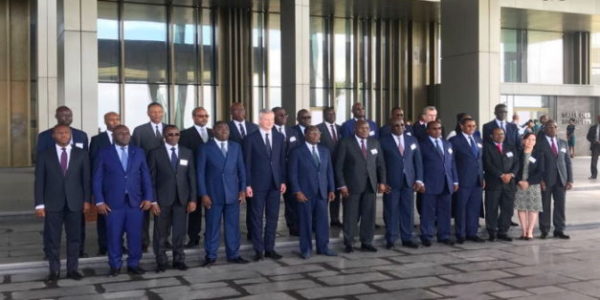President Denis Sassou Nguesso did not finally receive the French Minister of Finance, Bruno Le Maire, during the meeting of the franc zone held on 12 and 13 April in Brazzaville. The French money-maker contented himself with a tête-à-tête with his Congolese counterpart, Calixte Ganongo, Minister of Finance and Budget.
Brazzaville was hoping for fresh money to absorb its budget crisis as part of the Yaoundé pledge of December 2016, when France had pledged 1 billion euros to the countries in the zone. But meanwhile, François Hollande was succeeded by Emmanuel Macron at the Elysee and Michel Sapin was replaced by Bruno Mayor in Bercy.
Regarding the Congo, Paris conditions the release of 135 million euros announced on the sidelines of the meeting at the conclusion of an agreement with the IMF, which is on mission in the country until 17 in the aim of concluding a program.
Due to a debt estimated at 120% of GDP, Congo is in a critical situation, the epicenter of a CEMAC (Community of Central African States) area growing by 0%, in contrast with the 6% earmarked. by the West African Economic and Monetary Union (WAEMU).
The problems of over-indebtedness and public deficits, which figure prominently in the final communiqué, are pushing certain agencies to shake the specter of devaluation. On the question, the French Minister has been clear in front of his peers and the governors of central banks: “There will be no devaluation” he hammered, being of the opinion that the common currency to the eight states of the West Africa, 6 Central African States and the Comoros, is not overvalued.
And to suggest a possible reform of the area, probably echoing the many criticisms of African economists including the current incarnated by the Togolese Kako Nubukpo: “The franc zone is a historical legacy. We are ready to change it if African countries so wish. The same currency area provides stability. Clearly, Paris sends the ball of reforms to its African partners.



